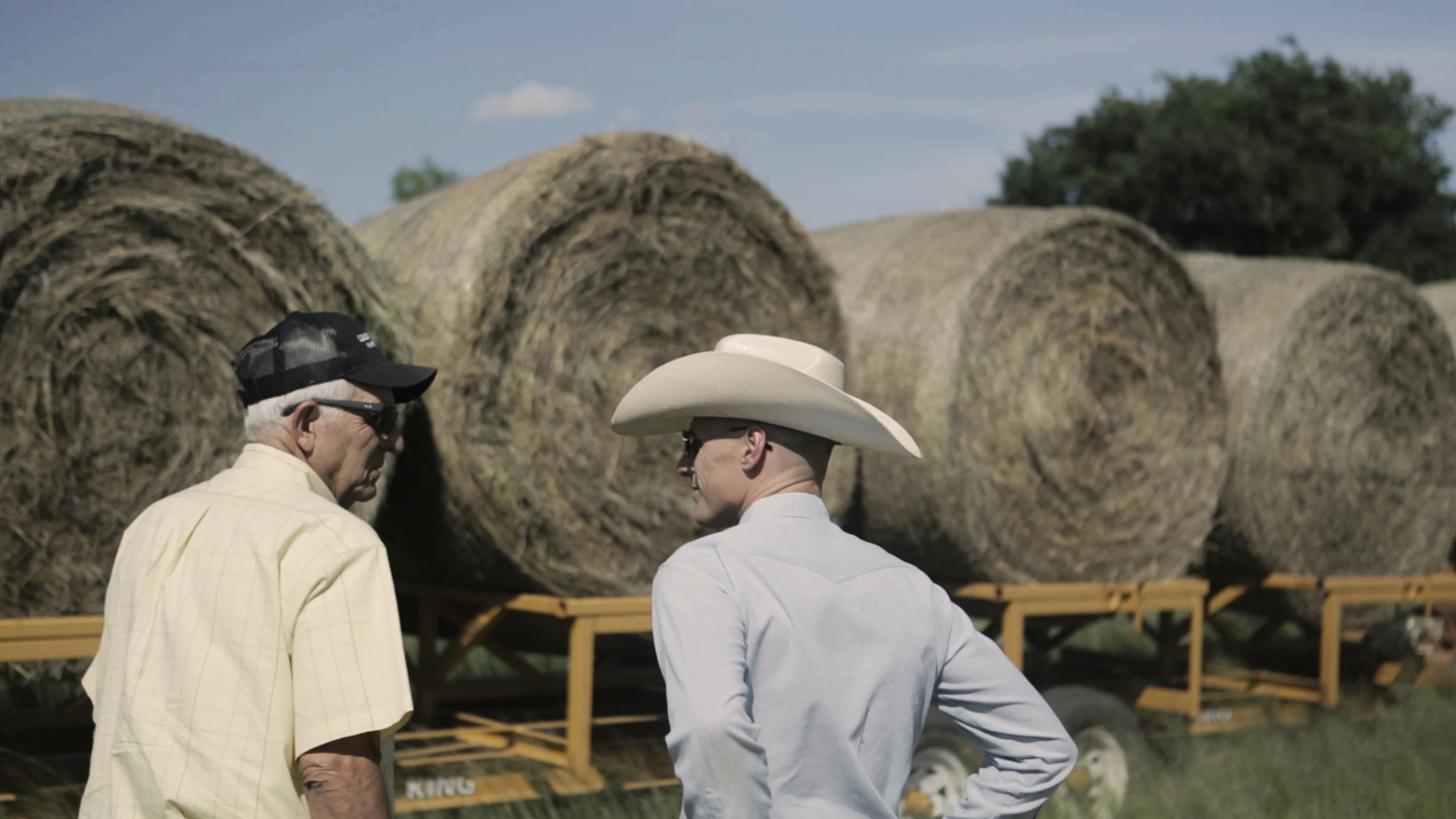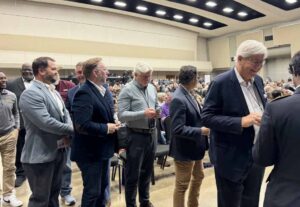
[SLIDESHOW=41543,41544,41545]HAMLIN, Texas (BP) — Cowboys roam in middle-of-nowhere West Texas. Not the city-slicking “rhinestone” kind in Dallas, but cowboys riding on horseback and corralling cattle into a pen. In these small towns, community life is a picture of a bygone era in American culture, where pastors are well-respected and everyone’s life is on public display.
When John Powell left Southern Baptist Theological Seminary in 2012 to become the pastor of First Baptist Church, Hamlin, Texas, he tried to corral his congregation like a cowboy into a pen of spiritual and theological maturity. But a period of despair fell upon Powell when he realized the loneliness of the pastoral calling and the reality that, in the breakneck pace of church ministry, “God didn’t call us cowboys; he called us shepherds.”
“Shepherds don’t push from behind, they lead from the front,” Powell said in a 9-minute mini-documentary released online by Southern Seminary in Louisville, Ky. “I came just wanting to ride a horse fast and have that bandanna blow in the wind, but what I realized is I need to foster a tenderness and gentleness and leadership in a way that cowboys don’t.”
Powell, who is from Kansas City, Mo., said studying at Southern Seminary for a master of divinity reaffirmed the call to ministry he first sensed at the age of 14. Although he spent most of his life as a “suburban kid,” Powell said his family’s deep roots in West Texas agrarian society attracted him to the pleasures of rural life when he made summer visits to his grandfather’s farm.
He freely admits he is not a true cowboy like many of his church members, but Powell enjoys outdoor excursions like the solitude of riding a horse and often wears a cowboy hat and boots. Powell certainly looks the part of a small-town pastor, but he said it took him nearly two years before he embraced the harsh realities of rural ministry.
Before moving to Hamlin, a town of 2,100 people, Powell said he could roam freely in Louisville without running into people he knew. But in a small town, a pastor’s life is on public display, and Powell said he soon recognized his pastoral responsibility even when he went to the grocery store or relaxed in his own home.
“There’s an accountability mechanism in a small town where everybody knows everyone, but there’s also a great opportunity for the Gospel to be proclaimed through just the simple everyday life of a man living in a small town,” Powell said. “I’ve always got to be on my game.”
Powell has since become an advocate for pastors not only to serve rural communities but to dedicate their lives to these areas. He said young pastors often marginalize rural churches by using them merely as a stepping stone for future ministry opportunities. While Powell recognizes the priority to reach the urban centers of the world, he insists shrinking rural communities also are the “ends of the earth” and need Great Commission faithfulness from ministers.
“Rural church ministry involves being with people when they are at their places of worth,” Powell said, describing how he often spends time with church members at their farms, hunting trips, or businesses rather than the privacy of his church office. “Rural church ministry is a ministry of presence.”
After nearly two years in Hamlin, Powell said he contemplated leaving the ministry. Despite his efforts in evangelism and expository preaching, Powell said he felt discouraged when his membership declined and no new converts joined the church. At that time, several close friends at Southern Seminary, including Provost Randy Stinson and former admissions director Ben Dockery, intervened and encouraged Powell. Stinson recommended Powell read Paul David Tripp’s “Dangerous Calling: Confronting the Unique Challenges of Pastoral Ministry,” which Powell credits with exposing the pride that “infiltrated” his ministry in Hamlin.
Contrary to some church growth strategies, Powell said his understanding of a successful ministry could not rely on instant results, increased membership and an expanded budget. Part of the reason he now encourages young pastors to commit their lives to rural church ministry is because it may take “10 years to see people catching on” to spiritual truths and exhortations.
“My paradigm for success has had to become sanctified,” Powell said. “I had to realize success was not more people, it may mean less people. Success was not more money, it may mean less money…. Success is faithfulness, even when it’s hard, even when you want to give up.”
A key to perseverance in rural ministry, Powell notes, is finding like-minded pastors in the area for mutual encouragement and friendship during times of loneliness. He said Southern Seminary has provided him with a network of alumni in rural parts of Texas with whom he can identify and share in the labors of ministry.
“I’m a product of Southern. It’s part of my DNA now,” Powell said. “The school has helped to craft me into the man that I am. I would not be the pastor that I am without the education that I received and the people I befriended.”
Powell is married to Katherine and they have three children: Gunner, Bennett and Ada Kate. In addition to his role at First Baptist Church, Hamlin, Powell serves on the leadership council for the Southern Baptist Convention’s Ethics & Religious Liberty Commission.
[YOUTUBE=YaI9spMkHcs]














